第33章 VI(4)
Bun Hin's dandy clerk at his elbow, as dirty as a sweep, was still green in the face. I could see directly I was in for something.
"'What the devil are these monkey tricks, Mr. Jukes?' asks the old man, as angry as ever he could be. I tell you frankly it made me lose my tongue. 'For God's sake, Mr. Jukes,' says he, 'do take away these rifles from the men. Somebody's sure to get hurt before long if you don't. Damme, if this ship isn't worse than Bedlam! Look sharp now. I want you up here to help me and Bun Hin's Chinaman to count that money. You wouldn't mind lending a hand, too, Mr. Rout, now you are here. The more of us the better.'
"He had settled it all in his mind while I was having a snooze.
Had we been an English ship, or only going to land our cargo of coolies in an English port, like Hong-Kong, for instance, there would have been no end of inquiries and bother, claims for damages and so on. But these Chinamen know their officials better than we do.
"The hatches had been taken off already, and they were all on deck after a night and a day down below. It made you feel queer to see so many gaunt, wild faces together. The beggars stared about at the sky, at the sea, at the ship, as though they had expected the whole thing to have been blown to pieces. And no wonder! They had had a doing that would have shaken the soul out of a white man. But then they say a Chinaman has no soul. He has, though, something about him that is deuced tough. There was a fellow (amongst others of the badly hurt) who had had his eye all but knocked out. It stood out of his head the size of half a hen's egg. This would have laid out a white man on his back for a month: and yet there was that chap elbowing here and there in the crowd and talking to the others as if nothing had been the matter. They made a great hubbub amongst themselves, and whenever the old man showed his bald head on the foreside of the bridge, they would all leave off jawing and look at him from below.
"It seems that after he had done his thinking he made that Bun Hin's fellow go down and explain to them the only way they could get their money back. He told me afterwards that, all the coolies having worked in the same place and for the same length of time, he reckoned he would be doing the fair thing by them as near as possible if he shared all the cash we had picked up equally among the lot. You couldn't tell one man's dollars from another's, he said, and if you asked each man how much money he brought on board he was afraid they would lie, and he would find himself a long way short. I think he was right there. As to giving up the money to any Chinese official he could scare up in Fu-chau, he said he might just as well put the lot in his own pocket at once for all the good it would be to them. I suppose they thought so, too.
"We finished the distribution before dark. It was rather a sight: the sea running high, the ship a wreck to look at, these Chinamen staggering up on the bridge one by one for their share, and the old man still booted, and in his shirt-sleeves, busy paying out at the chartroom door, perspiring like anything, and now and then coming down sharp on myself or Father Rout about one thing or another not quite to his mind. He took the share of those who were disabled himself to them on the No. 2 hatch.
There were three dollars left over, and these went to the three most damaged coolies, one to each. We turned-to afterwards, and shovelled out on deck heaps of wet rags, all sorts of fragments of things without shape, and that you couldn't give a name to, and let them settle the ownership themselves.
"This certainly is coming as near as can be to keeping the thing quiet for the benefit of all concerned. What's your opinion, you pampered mail-boat swell? The old chief says that this was plainly the only thing that could be done. The skipper remarked to me the other day, 'There are things you find nothing about in books.' I think that he got out of it very well for such a stupid man."